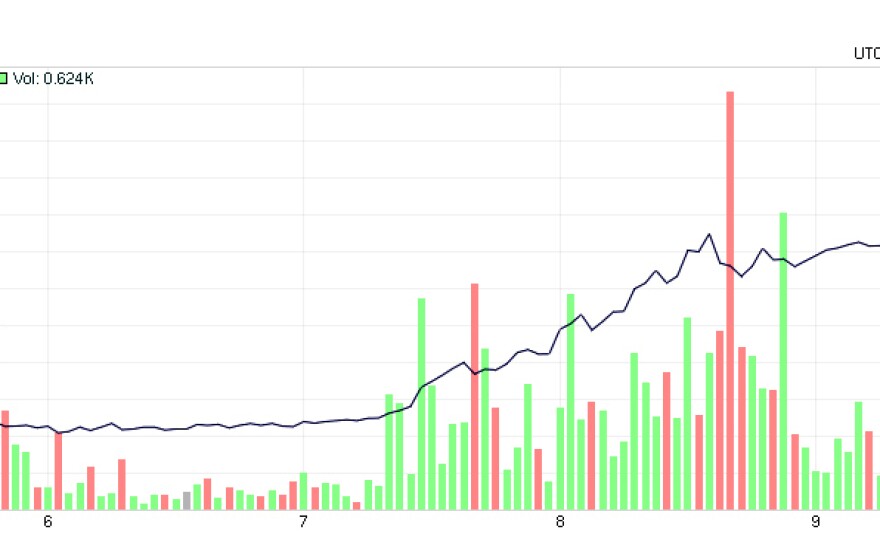Bitcoin, the digital currency that trades outside the control of central banks and international borders, reached new heights Tuesday, surpassing the $200 mark for the first time. That level comes just five days after bitcoin approached $150, a development that Mt.Gox, the largest exchange service for the currency, deemed to be "epic."
Bitcoin's rise has been sharp. It was only two months ago that exchange rates put a single bitcoin's value at around $20.
Because the digital currency's new gains have coincided with deep economic uncertainty in Cyprus, Spain, and elsewhere, some have suggested that a "bubble" was being created. As fears over inflation and even steep withdrawal fees rose, experts said, so did bitcoin. And if those fears waned, so would the currency's value.
But Jon Matonis of the Bitcoin Foundation tells Der Spiegel that he doesn't believe the connection is as direct as people think.
"Most transactions are still coming from affluent regions, like the United States and Northern Europe," he says. "What we are seeing is not a Cyprus bubble."
At Mt.Gox, which says it conducts more than 420,000 bitcoin trades each month, the digital currency didn't just plateau at the $200 mark. It plowed past it Tuesday, hitting a high of $240. As Jason Dorrier at Singularity Hub points out, that volatility is also linked to the currency's small size.
Bitcoin's popularity has also been linked to activities some governments may disapprove of, or seek to tax. NPR reported on its role in online gambling earlier this year. And aNew York Times story this week also noted bitcoin's acceptance by Silk Road, a website often "used as a market for controlled substances and narcotics."
Bitcoin's growth has led to changes at Mt.Gox, which announced last month that it would limit the maximum amount of monthly withdrawals to between $50,000 and $500,000, depending on customers' "verified" or "trusted" status.
Whatever the cause, bitcoin's gains have translated into new wealth for people who bought into it since it was created in 2009. The currency is released at a very steady rate -- "roughly every 10 minutes 25 new bitcoins come into circulation," as NPR's Steve Henn reported last week.
Its adherents say that regular pace, and the fact that there is only a finite number of bitcoins, make it an attractive alternative to government-backed currencies. Just over half of the 21 million bitcoins in existence have so far been released.
And the currency is gaining wide attention, with TechCrunch explaining how to "mine" bitcoins, and Forbes offering four reasons bitcoin is worth studying. Back in 2011, NPR's Planet Money team acquired some bitcoins, in an experiment that ended when robbers looted the virtual bank that had been holding the currency.
One "miner," Chris Koss, has his entire life savings in bitcoins -- something he recently told Steve Henn has brought big gains, as well as worries over how long the boom will continue.
Its steep rise has made some folks wistful for the bitcoins they frittered away on, well, fritters -- some cafes and bars in the U.S. and Europe accept bitcoins. And others have felt new pangs of regret for bitcoins they lost when a hard-drive suffered a catastrophic failure.
That's the case for Stefan Thomas, a programmer who tells Der Spiegel, "I once lost 7,000 bitcoins, because I had forgotten to make a backup copy."
If Thomas had held onto those bitcoins, they would be worth around $1.4 million today.
Copyright 2013 NPR. To see more, visit www.npr.org.






